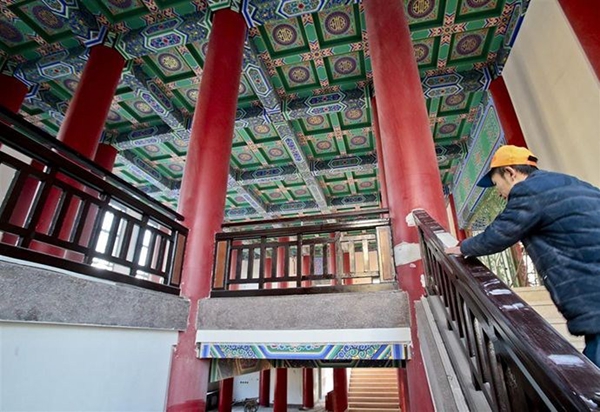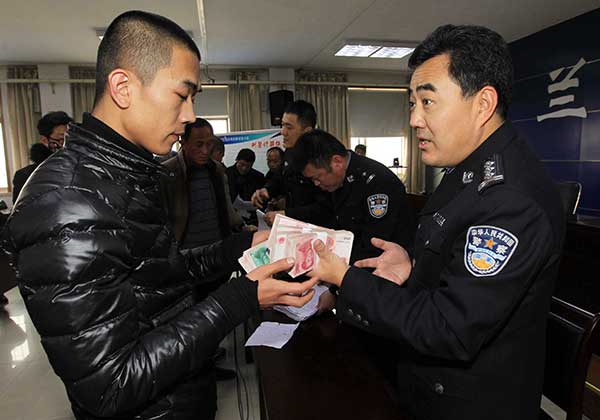Classic library restored to its former glory
|
|
|
Restoration of the former Shanghai Library in Yangpu District has been completed. [Shanghai Daily] |
Restoration of the former Shanghai Library in Yangpu District has been completed.
Officials said yesterday that expansion work would continue to realize the original vision of its architect Dong Dayou (1899-1973).
The exterior of the 80-year-old library on Heishan Road was damaged by decades of weathering and has now been cleaned and repainted.
The yellow glazed tiles on the roof were restored in Yixing in neighboring Jiangsu Province where they were originally manufactured, an official with the district culture bureau said.
Experts have also renovated the iron gate at the library’s main hall, known as “the peacock gate” due to its elegant patterns.
The paintings on the ceiling of the 156-square-meter hall have also been restored, helped by finding details of the works in a hidden cabinet in the library.
The paintings on many 1-square-meter panels have traditional Chinese double happiness and lucky symbols as well as intricate corner designs, said Ma Lili, the lead restorer.
A further expansion work will extend the 3,900-square- meter library to 15,000 square meters, following the original design charts created by Dong, who studied at the University of Minnesota and Cornell University. Dong was also renowned for his works on an earlier Shanghai city hall in 1931 and many Spanish-style houses on Wukang Road.
Upon its completion, the restored and expanded building in the Jiangwan area will serve as the Yangpu District Library with about 650,000 book and seating for 650 people.
“If the expansion goes smoothly, the new library will open to public by the end of the year,” an official with the culture bureau told Shanghai Daily yesterday.
It will serve the 1.24 million residents of the district and include an exhibition hall on the history of the library.
The library was built by the then Kuomintang government in 1930s as part of the “Greater Shanghai Plan” to bring the city government and major facilities to the area. It was expected to form part of a new city center along with government buildings, a museum, a stadium, a hospital and TV and radio stations.
The Jiangwan Stadium is still in use today.
However, construction on the library was suspended in 1935 with the start of the War of Resistance Against Japanese Aggression. Although only partially built, it still opened, before closing a year later.
In its heyday, the library had more than 20,000 books, including 1,300 foreign titles. Most were lost during the war.
After the war, the library was used to detain Japanese prisoners of war. It was then converted into a military headquarters by the Kuomintang government in 1946. Traffic police were later based in the building.
It also served as the school library and dormitory of Tongji Middle School until 2000. Then it lay empty until renovation work started three years ago.

